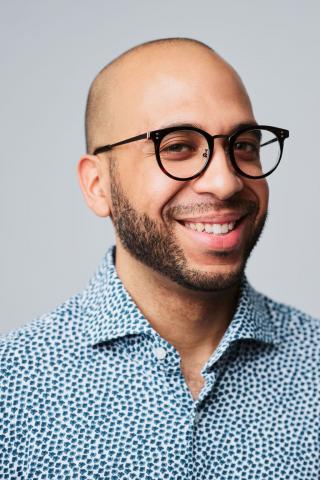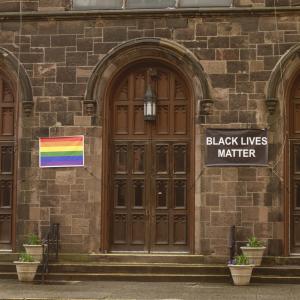
Daniel José Camacho is a writer and editor whose work has appeared in publications such as The Guardian, Sojourners, The Revealer, The Point, Religion News Service, America Magazine, and ABC Religion & Ethics. He is currently working on a book about Bartolomé de las Casas with Avid Reader Press, an imprint of Simon & Schuster.
Posts By This Author
Catholic Peace Activists Inspire Others To Walk Against Nuclear Weapons
A group of about 20 peacemakers are embarking on an 11-day, 110-mile walk from Savannah, Ga., to Kings Bay, Ga. Named, “Disarm Trident: Savannah to Kings Bay Peace Walk,” the action is a call to abolish nuclear weapons globally and is supporting the seven Catholic activists arrested back in April on the Kings Bay Naval Submarine Base back in April.
“We will walk in nonviolence and prayer with the hope of bending the moral arc of the world towards justice and peace,” Kathy Kelly, one of the organizers of the walk, said in a news release.
Can Someone Who Owns 10 Yachts Enter The Kingdom Of God?
Can someone who owns 10 yachts enter the kingdom of God? I’m not sure. Only God can judge a soul. What I can say is that it’s unjust for billionaires—including the wealthiest Christians in human history—to amass obscene profits while gutting the public goods and social safety nets that help ordinary people. Capitalism is so deeply ingrained in our Christianity that it is the default. Yet, this arrangement is neither natural nor inevitable.
In One Nation Under God: How Corporate America Invented Christian America , historian Kevin Kruse highlights how business leaders partnered with Christian libertarians in the 1940s and 1950s to demonize the welfare state and elevate an unfettered market. They associated the New Deal with theft against business owners and with deification of the state. Under the banner of freedom, preachers such as Billy Graham and media moguls such as Cecile B. DeMille linked Christianity with free enterprise.
Christianity Is Experiencing a Patriarchal Crisis
Both the Protestant and Roman Catholic worlds have been rocked in the past couple of weeks by news involving abuse and sexual misconduct. Willow Creek Community Church, one of the first churches to popularize the megachurch model, became the Protestant epicenter when more allegations of sexual harassment about its founder came to light. And six Catholic dioceses are now the Roman Catholic epicenter after an 884-page grand jury report revealed a massive cover-up in which priests abused at least 1,000, and likely many more, children over a period of 70 years.
How the Changing Church Will Define the Future of U.S. Politics
Last week, President Donald Trump announced via Twitter his intent to bar transgender from people serving in the military — a move reportedly heavily influenced by the Family Research Council, a conservative evangelical lobbying organization. The Public Religion Research Institute reports that more than one in five Americans have a close friend or family member who is transgender and more than six in ten Americans say transgender people face a lot of discrimination in the country today. This snapshot captures the dynamics of the Trump era: the anxieties and reactionary measures of religious conservatives within a cultural and religious landscape that is dramatically shifting.
When We Vote Against Peace

Graffiti in Bogotá, Colombia. via svenwerk / Flickr.com
The “No” vote on a proposed peace deal in Colombia between the government and rebel group FARC has shocked virtually everyone.
People of conscience and faith here in the U.S. should pay close attention to Colombia for many reasons, not least of which is the fact that the struggle for peace there presents a mirror to our own fears and dispositions and to the global logics of the war on terror and drugs. One thing that the results of the plebiscite revealed is that it is hard to change public imagination overnight after spending decades of fueling war, demonizing enemies, and seeing issues one-dimensionally.
Open Letter to the College Senior Detecting Colonial Prejudice
The reality is that modern Christianity in the Americas was built upon the genocide of indigenous people, the theft and commodification of land, and the enslavement of black people. It wasn’t simply an ethical glitch of bad people with otherwise good theology. No. This was praxis, linked with liturgy, linked with worldview, and, beyond that, to imagination. Will you continue to believe that modern “Christianity” is essentially good but was simply misused by bad people? Or, will you have the unflinching courage to critically examine Christianity’s role in horrors, in inequality, even in your own alienation?




